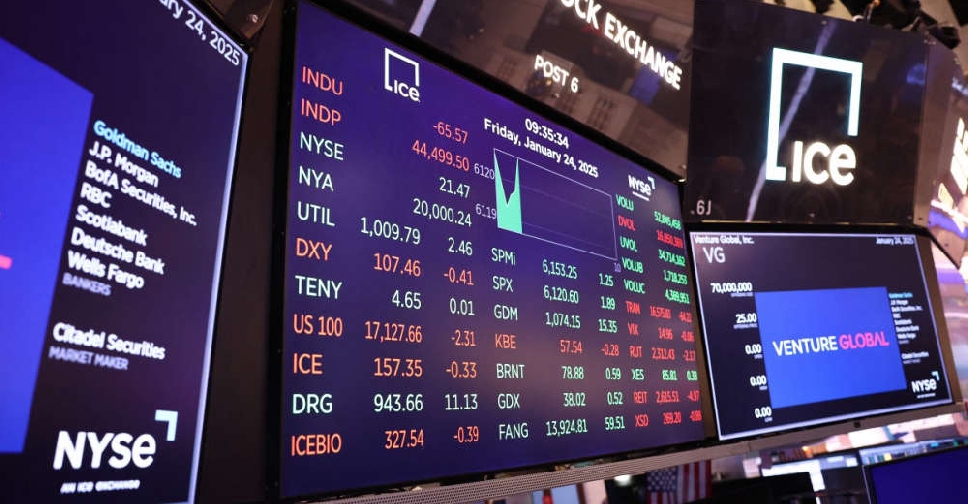
Facebook-parent Meta Platforms said on Tuesday it would cut 10,000 jobs this year, making it the first Big Tech company to announce a second round of mass layoffs.
The widely-anticipated job cuts are part of a restructuring that will see the company scrap hiring plans for 5,000 openings, kill off lower-priority projects and "flatten" layers of middle management.
They followed the company's first mass layoff in the fall, which eliminated more than 11,000 jobs, or 13 per cent of its workforce at the time, after an extensive hiring spree that doubled the employee count it had as of 2020.
In a message to staff, Chief Executive Mark Zuckerberg said most of the cuts would be announced in April and May, though in some cases they would continue through the end of the year.
"For most of our history, we saw rapid revenue growth year after year and had the resources to invest in many new products. But last year was a humbling wake-up call," Zuckerberg wrote.
"I think we should prepare ourselves for the possibility that this new economic reality will continue for many years."
Zuckerberg said he planned to further reduce the size of the recruiting team, which was especially hard-hit in the fall layoffs. Restructurings in the tech group would be announced in late April and cuts to business groups would come in May.
The first of those cuts appeared to come last week. On Friday, the company said it was exploring "strategic alternatives" for Kustomer, a customer service company it acquired last year.
SATISFYING INVESTORS
The move may assuage investors who have grown wary of Zuckerberg's prolific spending as revenue growth from Meta's main businesses petered out amid high inflation and a digital ads pullback from the pandemic-era e-commerce boom.
Worries of an economic downturn due to rising interest rates have also sparked a series of mass job cuts across corporate America: from Wall Street banks such as Goldman Sachs and Morgan Stanley to Big Tech firms including Amazon.com and Microsoft.
Meta, which is pouring billions of dollars to build a futuristic metaverse, has also struggled with adaptations to privacy changes led by tech rival Apple and competition for young users from short video app TikTok.
The ongoing cuts indicate "how desperate the company is to get costs under control as its revenues have fallen amid declining marketing budgets," said Hargreaves Lansdown analyst Susannah Streeter.
"Virtual reality is an expensive business to be in, so while (Meta) maps out a path through an uncertain landscape, it needs to find efficiencies elsewhere," she added.
In response, Zuckerberg has promised to turn 2023 into the "Year of Efficiency."
Wall Street has been rewarding Meta steadily since the fall restructuring, after its share price fell more than 70 per cent earlier in 2022.
The stock received another boost in February when Meta announced new cost controls and a $40-billion share buyback.
With the latest move, Meta expects expenses in 2023 to come in between $86 billion and $92 billion, lower than the $89 billion to $95 billion forecast previously.
Zuckerberg said Meta will remove multiple layers of management, ask managers to become individual contributors and give them less than 10 direct reports, which would in turn make the organization "flatter."
"We don't expect to grow headcount as quickly, it makes more sense to fully utilize each manager's capacity and defragment layers as much as possible," he said.
Meta's move in November to slash its headcount by 11,000 marked the first mass layoffs in its 18-year history. Its headcount stood at 86,482 at 2022-end, up 20 per cent from a year ago.
The tech industry has laid off nearly 290,000 workers since the start of 2022, with about 40 per cent of them coming this year, according to layoff-tracking site layoffs.fyi.




 Trump threatens to hike China tariffs further as market plunge continues
Trump threatens to hike China tariffs further as market plunge continues
 Sheikh Abdullah meets foreign ministers of Azerbaijan and Cyprus
Sheikh Abdullah meets foreign ministers of Azerbaijan and Cyprus
 Innovation, sustainability take centre stage at Middle East Energy
Innovation, sustainability take centre stage at Middle East Energy
 Abu Dhabi records 9% growth in non-oil foreign trade
Abu Dhabi records 9% growth in non-oil foreign trade
 S&P 500 nears bear market as Trump's tariffs hammer stocks
S&P 500 nears bear market as Trump's tariffs hammer stocks



